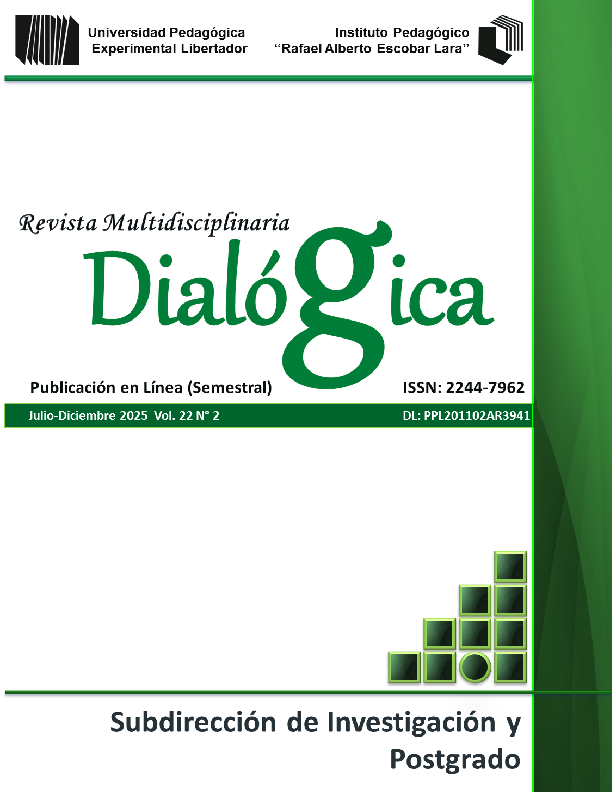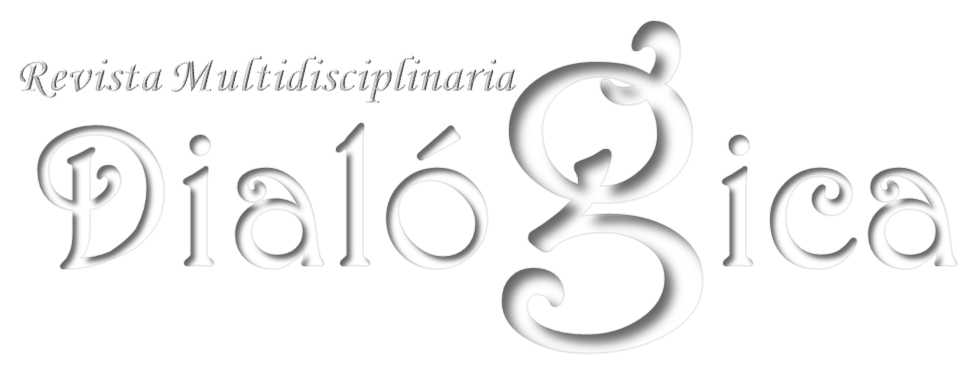Beyond the blackboard. Comparing traditional and constructivist teaching strategies in the development of logical-mathematical intelligence
DOI:
https://doi.org/10.56219/dialgica.v22i2.3772Keywords:
Teaching methods, multiples intelligence, logical-mathematical intelligence, academic achievement, constructivismAbstract
This paper reports on a research study that aimed to compare the effectiveness of two teaching methods: the traditional model and another that utilizes constructivism, in the development of logical-mathematical intelligence within the framework of Gardner's multiple intelligences. This was achieved with the participation of 27 eighth and ninth-grade students from the rural educational institution La Rastra, located in the municipality of Milán, Department of Caquetá, in Colombia. Through a quantitative approach and the application of different pedagogical strategies, the study sought to determine which of these approaches was more effective in fostering mathematical thinking, problem-solving, and the understanding of abstract mathematical concepts, through the completion of a final test with standardized questions. The results obtained made it possible to identify the strengths and weaknesses of each method, as well as to propose recommendations for the implementation of more effective pedagogical practices.
References
Celi, S., Quilca , M., Sánchez, V., y Paladines, M. (2021). Estrategias Didácticas para el desarrollo del pensamiento lógico matemático en niños de educación inicial. Horizontes. Revista de Investigación en Ciencias de la Educación, 5(19), 826–842. https://doi.org/10.33996/revistahorizontes.v5i19.240 DOI: https://doi.org/10.33996/revistahorizontes.v5i19.240
Assia, G., Vivas, M., y Barreto, L. (2022). Relación entre la inteligencia lógico-matemática. (R. c. CUC, Ed.) JOURNAL OF APPLIED COGNITIVE, 3(2), 1-10. https://doi.org/10.17981/JACN.3.2.2022.04 DOI: https://doi.org/10.17981/JACN.3.2.2022.04
Ávila, A. (2019). Inteligencias Múltiples una aproximación a la teoría de Howard Gardner. Horizontes Pedagógicos, I, 19-27. https://dialnet.unirioja.es/descarga/articulo/4892998.pdf
Baque, G. R. (2021). El aprendizaje significativo como estrategia didáctica para la enseñanza - aprendizaje. Polo del Conocimiento, 6(5), 75-86. https://dialnet.unirioja.es/servlet/articulo?codigo=7927035
Barrera, N. (2024). Teoría de las Inteligencias Múltiples de Gardner para el fortalecimiento del aprendizaje de las Matemáticas. Revista docencia Universitaria, 25(2), 59-68. https://doi.org/10.18273/revdu.v25n2-2024006 DOI: https://doi.org/10.18273/revdu.v25n2-2024006
Buñay, Silvia. (2023). Las inteligencias múltiples y el aprendizaje en el aula. Esprint Investigación, 2(1), 16-28. https://doi.org/10.61347/ei.v2i1.37 DOI: https://doi.org/10.61347/ei.v2i1.37
Cardoso, M. (2022). Las inteligencias múltiples y su impacto en la educación inicial. Neuronum, 8(2), 107-110. https://eduneuro.com/revista/index.php/revistaneuronum/article/view/420
Díaz, R., y Alay, A. (2023). La lúdica como estrategia activa para estimular el desarrollo del pensamiento lógico matemático en niños de Educación Inicial. Journal Scientific Investigar, 7(3), 561-586. https://doi.org/10.56048/MQR20225.7.3.2023.561-586 DOI: https://doi.org/10.56048/MQR20225.7.3.2023.561-586
Franco, H., Cruz, P., Quioto, Y., y Alcantara, P. (2022). Inteligencias múltiples: su importancia para los aprendizajes. Researchgate. https://goo.su/JKqL
Gómez, J., y Guzmán, B. (2022). Estrategias didácticas basadas en las inteligencias múltiples para la transformación de la enseñanza de la matemática en básica primaria. Revista Franz Tamayo, 04(11), 24-38. https://www.redalyc.org/pdf/7605/760579088001.pdf
Leiva, C. (2021). Inteligencia Múltiples de Howard Gardner. España: (U. d. Rioja, Ed.)
Ministerio de Educación. (2024). Saber 3º, 5º y 9º 2024, Cuadernillo de prueba. Bogotá, D.C: ICFES.
Rodríguez , U., Paba, C., y Paba, Z. (2021). Escala de habilidades de múltiples inteligencias:normatización y evidencias de validez. Psicología desde el Caribe, 37(1), 19-39. https://doi.org/10.14482/psdc.37.1.155.7 DOI: https://doi.org/10.14482/psdc.37.1.155.7
Sánchez, K., Hernández, L., Acosta, Y., Baglan, V., y Bernando, D. (2013). La teoría de las inteligencias múltiples. Consideraciones para su estudio. (U. d. Guantánamo, Ed.) Revista Información Científica, 79(13), https://www.redalyc.org/pdf/5517/551757266017.pdf
Valbuena, S., Padilla, I., y Rodríguez, E. (2021). Reconocer la inteligencia lógico-matemática en estudiantes con capacidades especiales. (U. d. Atlántico, Ed.) Tecné, Episteme y Didaxis: TED, 49, 53-72. https://doi.org/10.17227/ted.num49-8152 DOI: https://doi.org/10.17227/ted.num49-8152
Published
How to Cite
Issue
Section
License
Copyright (c) 2025 Angela Patricia Mora Pantoja, Jorge Leonardo Rodríguez Ordoñez, Ricardo Antonio Vallejo Villarreal

This work is licensed under a Creative Commons Attribution-NonCommercial-ShareAlike 4.0 International License.


 @revistadialogica
@revistadialogica DialogicaUPEL
DialogicaUPEL RevistaDialogicaUPELMaracay
RevistaDialogicaUPELMaracay dialógicaupel@gmail.com
dialógicaupel@gmail.com dialogicaupel.blogspot.com
dialogicaupel.blogspot.com https://issuu.com/dialogicaupel
https://issuu.com/dialogicaupel https://revistas.upel.edu.ve/index.php/dialogica/
https://revistas.upel.edu.ve/index.php/dialogica/









